Vegan protein is usually low in cholesterol, low in fat and has a suite of other vitamins, minerals and micronutrients.
However, there are two important concerns before choosing a vegan protein source:
- Are you getting sufficient protein by body weight?
- Is the composition of amino acids in the protein complete?
How Amino Acids Impact Immune Function
While the first concern is fairly straightforward to measure on traditional nutrition labels, the composition of amino acids in vegan protein is harder to find. Particularly important are the 9 essential amino acids that humans cannot produce.
From Wikipedia on essential amino acids, “Of the 21 amino acids common to all life forms, the nine amino acids humans cannot synthesize are phenylalanine, valine, threonine, tryptophan, methionine, leucine, isoleucine, lysine, and histidine.”
Here we curated 6 balanced plant foods that addresses both concerns – foods both high in protein and contain a balanced blend of all essential amino acids.
Data sourced from U.S. Department of Agriculture (USDA), research citations from National Institute of Health (NIH).
1. Edamame (Immature Soybeans)
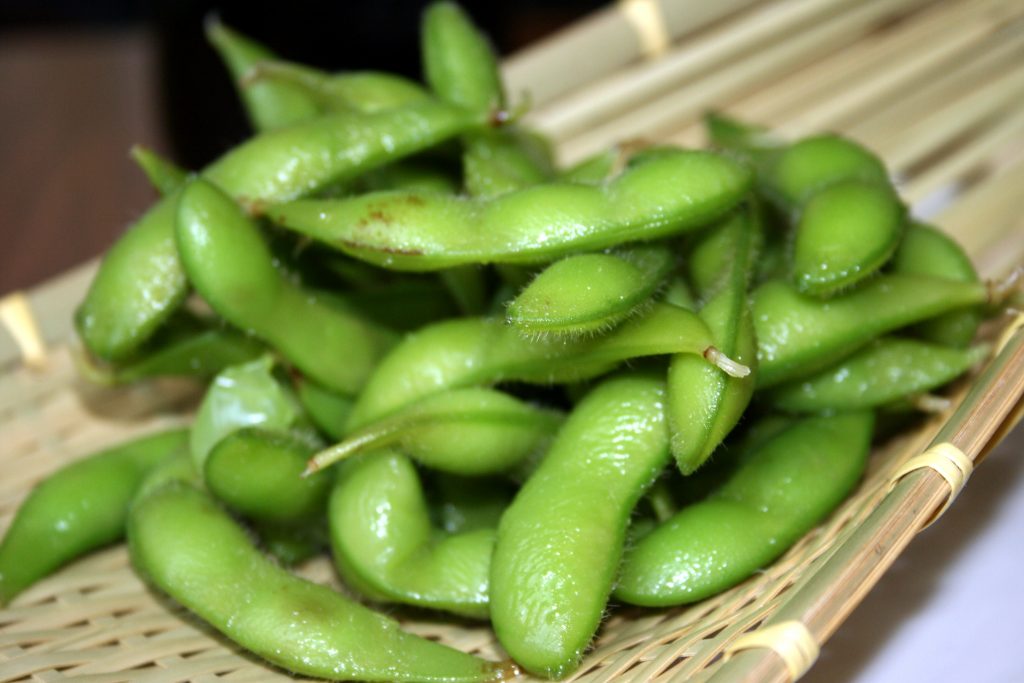
© Wikimedia Commons User:Zesmerelda / CC-BY-SA-2.0
From Wikipedia, “edamame is a preparation of immature soybeans in the pod, found in cuisines with origins in East Asia. The pods are boiled or steamed and may be served with salt or other condiments.”
Edamame can be found frozen in grocery stores and could easily be prepared by boiling in salted water and served drizzled in sesame oil, another great source of vegan protein.
One cup of edamame has 18 grams of protein and 25% to 75% of your daily values for each essential amino acid.
Soybeans are a complete source of protein, which means that they nourish the body with all nine essential amino acids. In fact, from several studies published by NIH, soy protein is one of the few plant based proteins with digestibility and amino acid profiles comparable to meat, egg and dairy.
As an unprocessed plant protein, edamame is also full of other nutrients like Iron, Magnesium and Potassium. High in dietary fiber and low in total carbohydrates, it’s an incredibly healthy addition to a vegan diet.
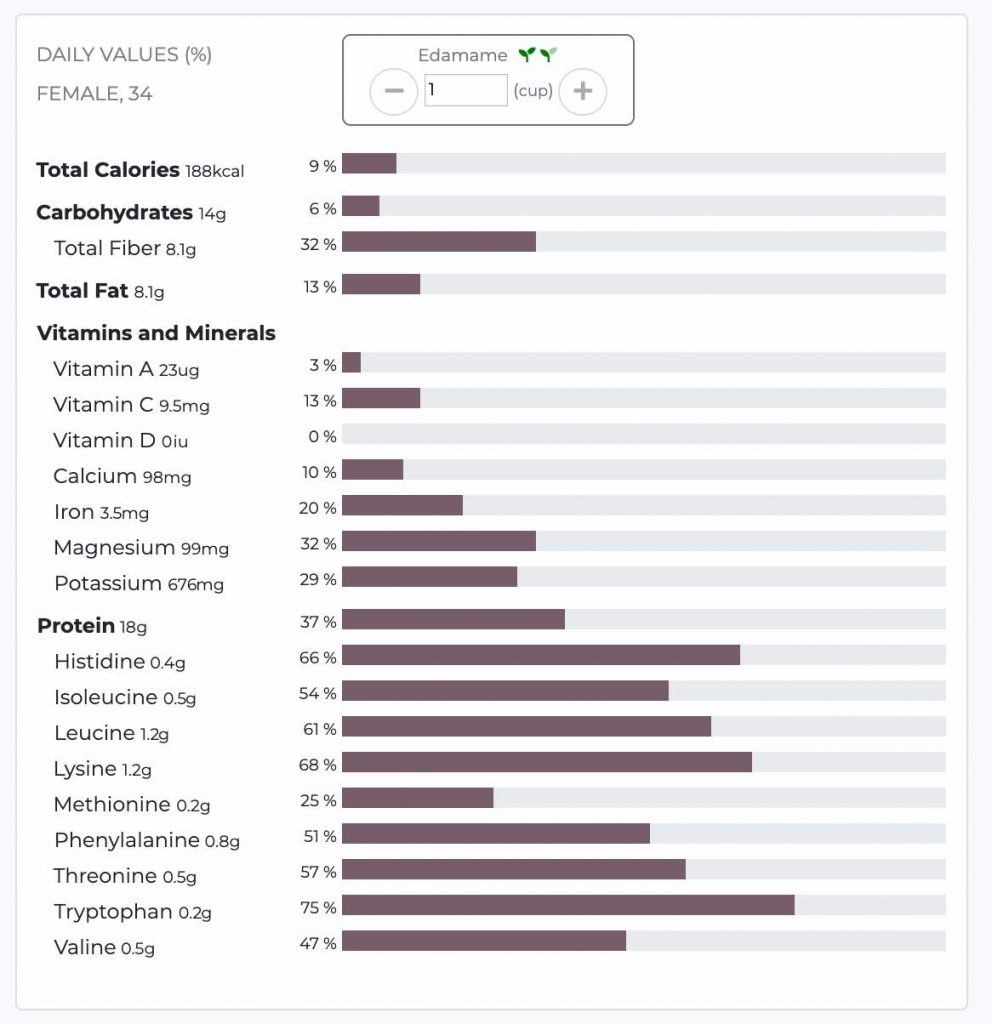
2. Beans and Rice
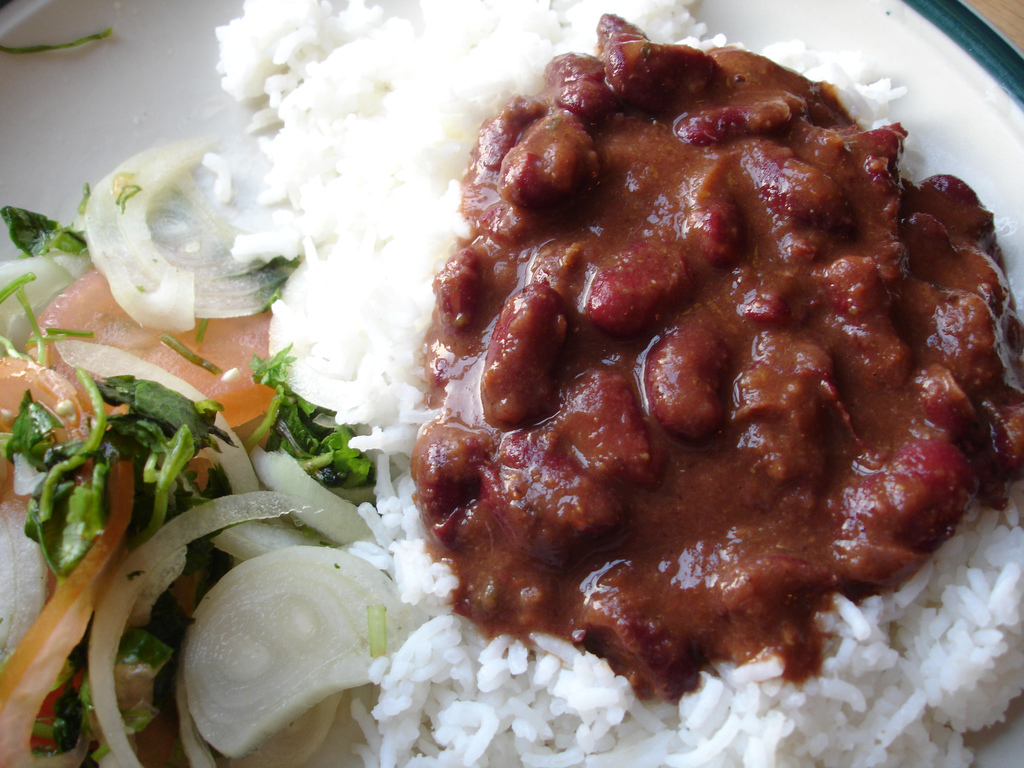
© Wikimedia Commons User:rovingI / CC-BY-SA-2.0
Beans and rice is a staple dish in many cultures around the world, and for good reason. The friendly grain and legume union provides many important nutrients and is calorie rich, while being readily available and affordable.
One cup of black beans and rice has 10 grams of protein and at least a quarter of your daily values for each essential amino acid.
The duo is often served next to each other, with white or brown rice accompanied by cooked, seasoned black, pinto or red beans.
While different beans slightly vary in their nutritional profile, common beans like black, pinto or lima beans all contain significant amounts of all essential amino acids. Rice complements by adding a small boost of methionine to the mix.
Beans are also a good source of Iron, Magnesium, Potassium and dietary fiber.
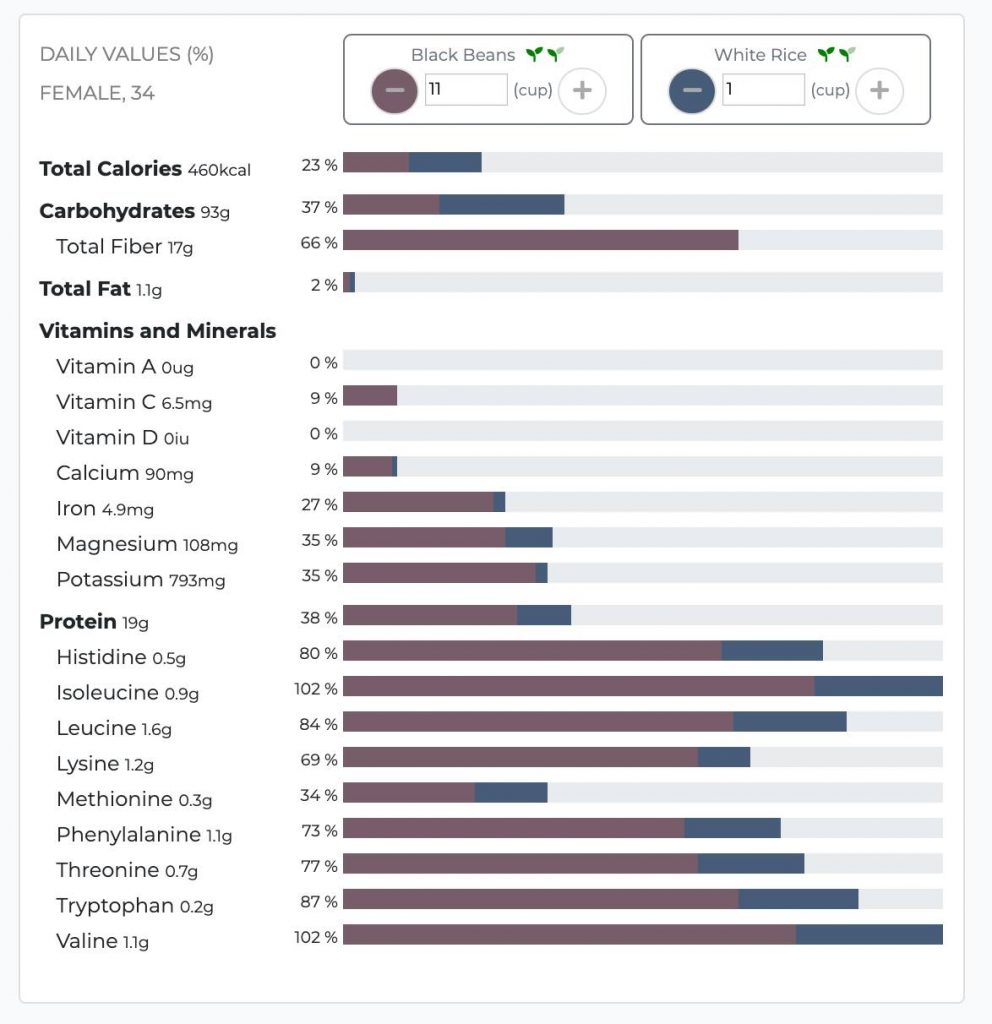
3. Peanut Flour
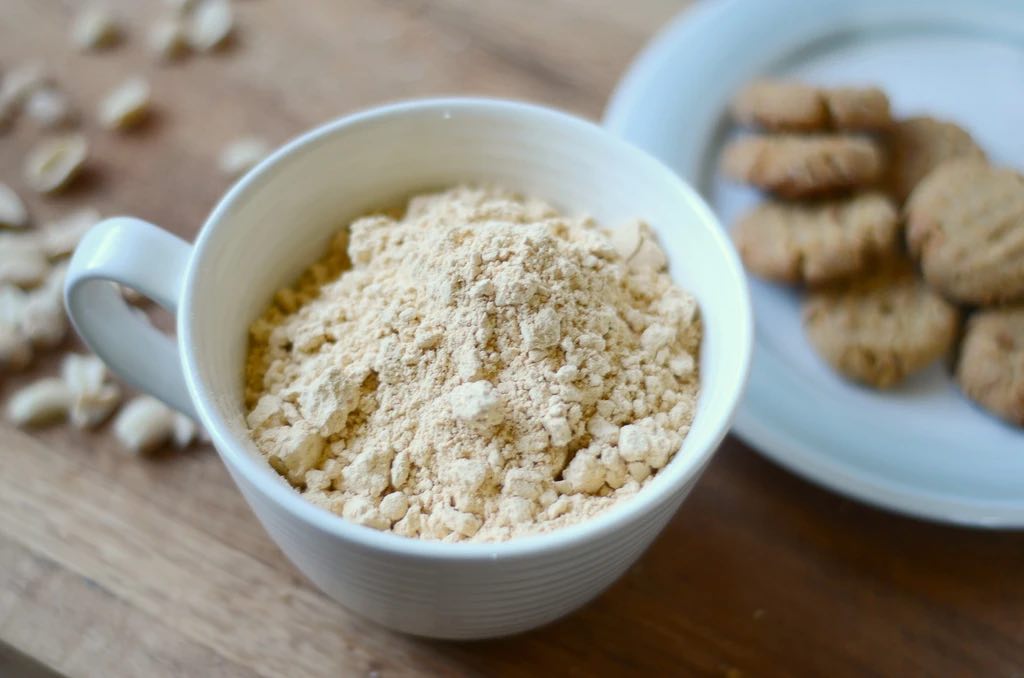
Peanut flour is made from crushed defatted peanuts and is a lesser conventional complete source of vegan protein, but boy does it pack a punch.
Depending on the quantity of fat removed, peanut flour is highly protein-dense, providing up to 30 grams per cup. It also has at least 40% of your daily needs for each essential amino acid.
It’s often used as a soup thickener and in baked goods. For example, you can make peanut butter cookies or peanut banana bread.
Defatted peanut flour is very low in fat and cholesterol, and high in dietary fiber with healthy doses of Magnesium and Potassium.
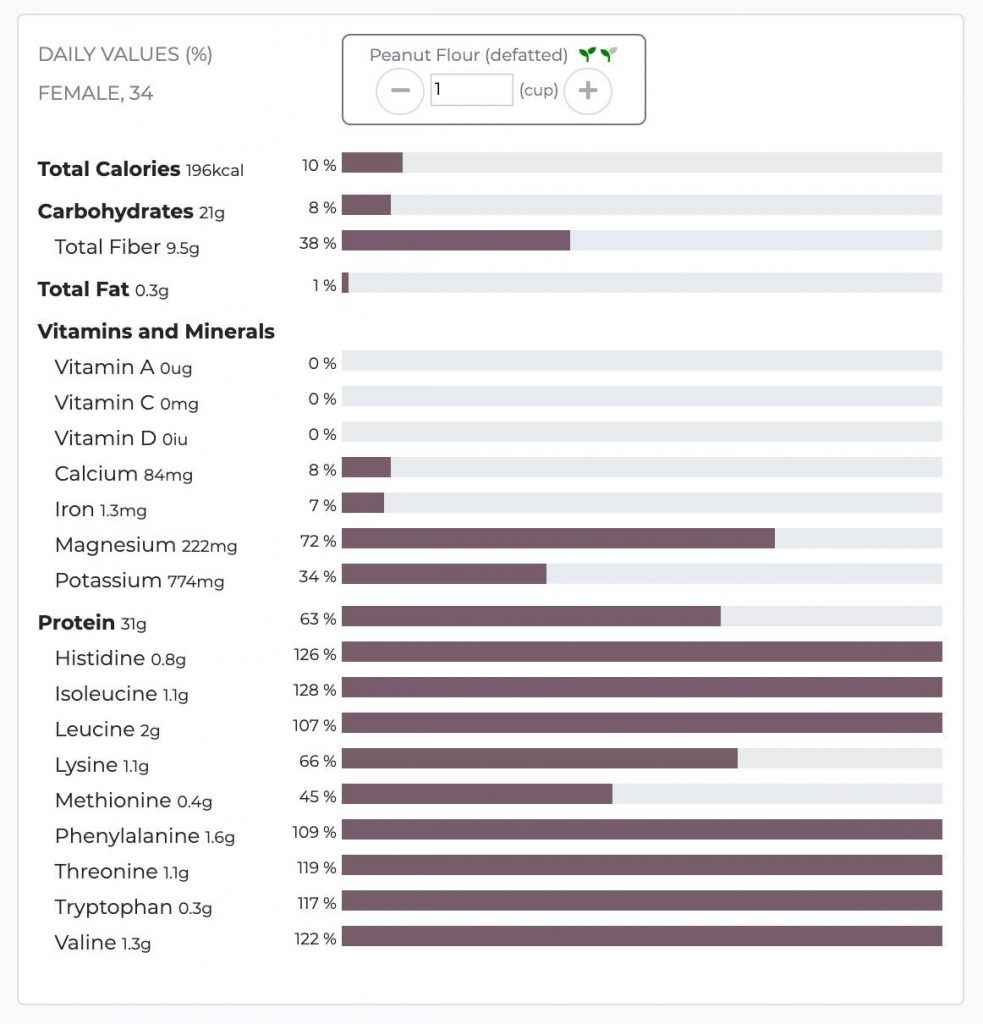
4. Pumpkin and Squash Seeds
Pumpkin seeds are nutrient rich and contains plenty of protein along with all essential amino acids.
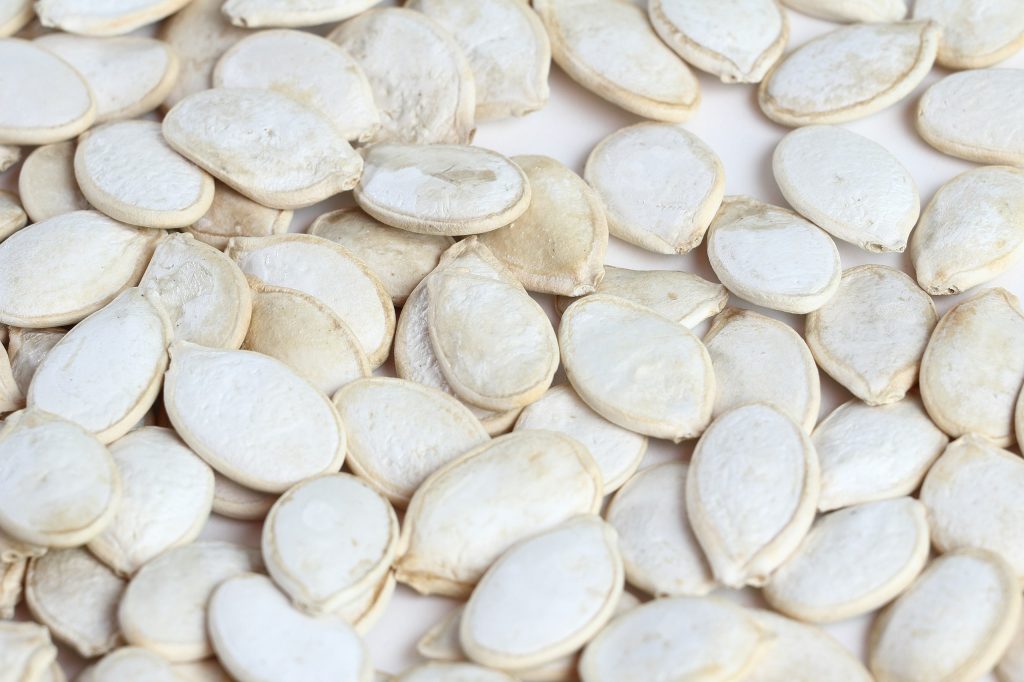
© Wikimedia Commons User:Dmitry Makeev / CC-BY-SA-4.0
One cup of pumpkin seeds has 12 grams of protein and at least 30% of your daily values for each essential amino acid.
Save those seeds from your autumn decor and roast them in the oven drizzled in some olive oil and spices. Roasted pumpkin seeds are a great salad topper or a light snack.
Pumpkin seeds contain a generous amount of dietary fiber, and numerous micronutrients like Manganese and Phosphorus.
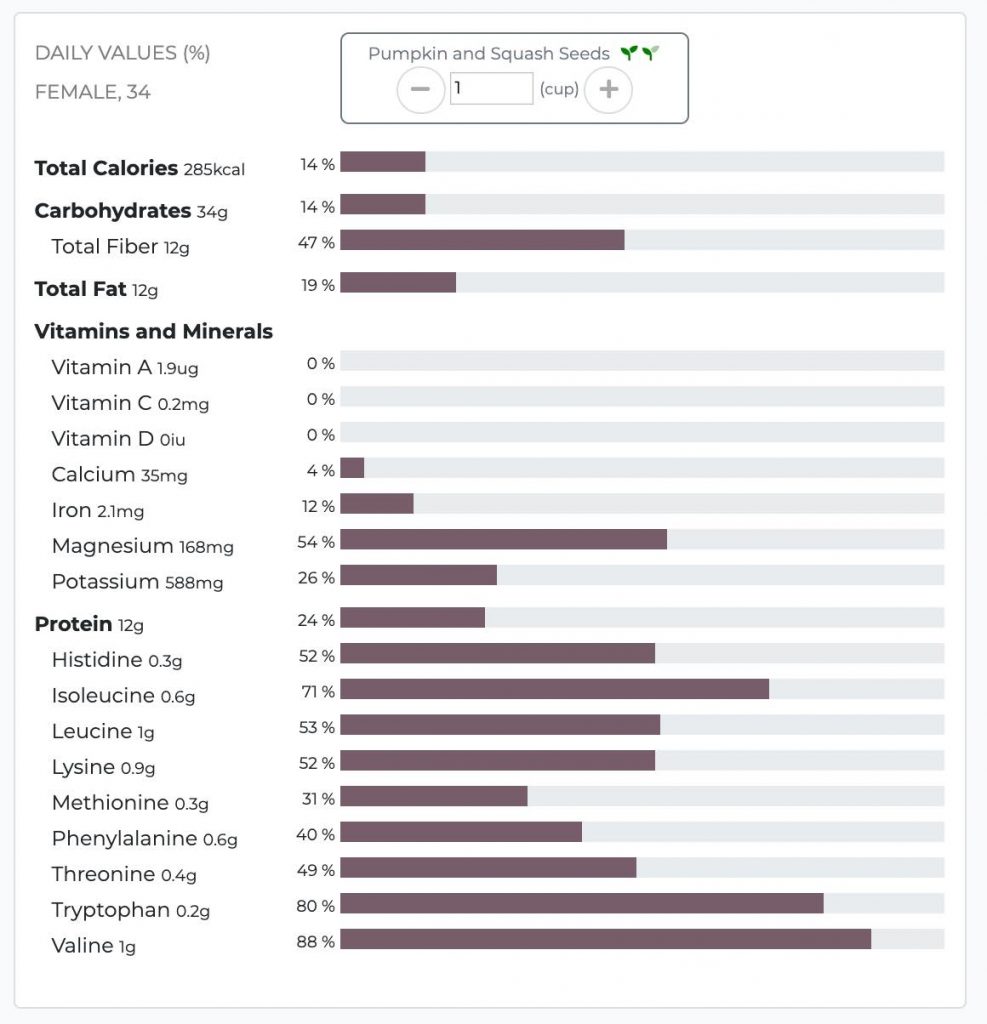
5. Oats
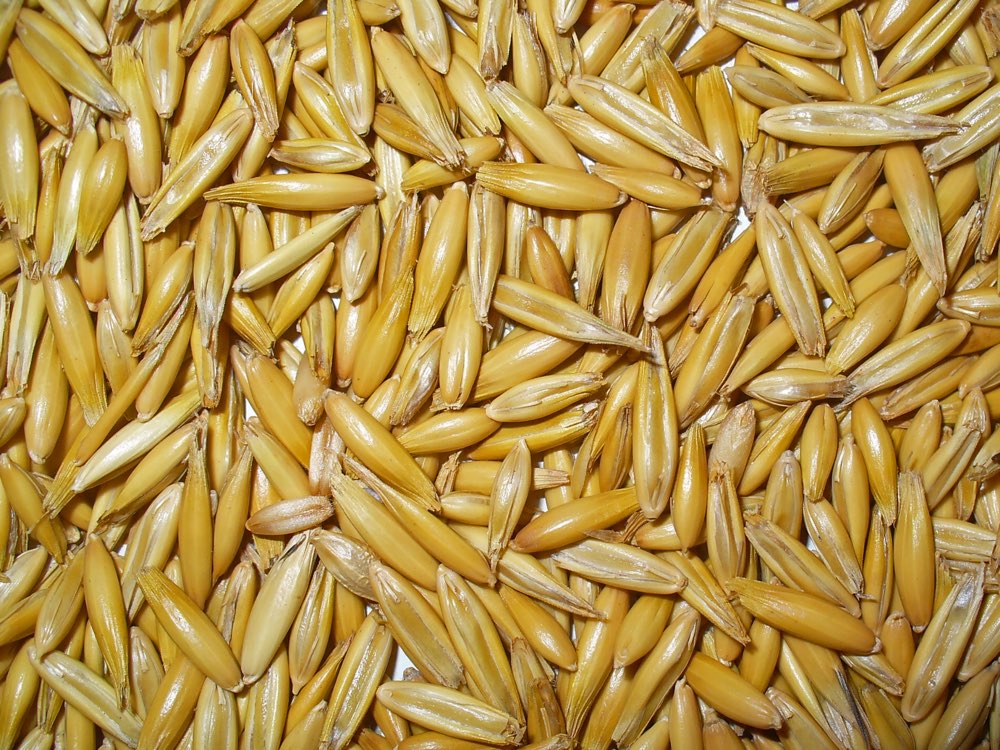
© Wikimedia Commons User:H. Zell / CC-BY-SA-3.0
Oats are very nutrient-rich, accessible and studies from NIH show links to lower blood cholesterol if habitually consumed.
Oat’s protein profile could be comparable to a soy protein, with one cup of oats having 26 grams of protein and at least half of your daily values for each essential amino acid.
Commonly prepared as oatmeal or rolled oats, it can also be baked into cakes, cookies and breads.
In addition, it’s loaded with Thiamine, Manganese and dietary fiber.
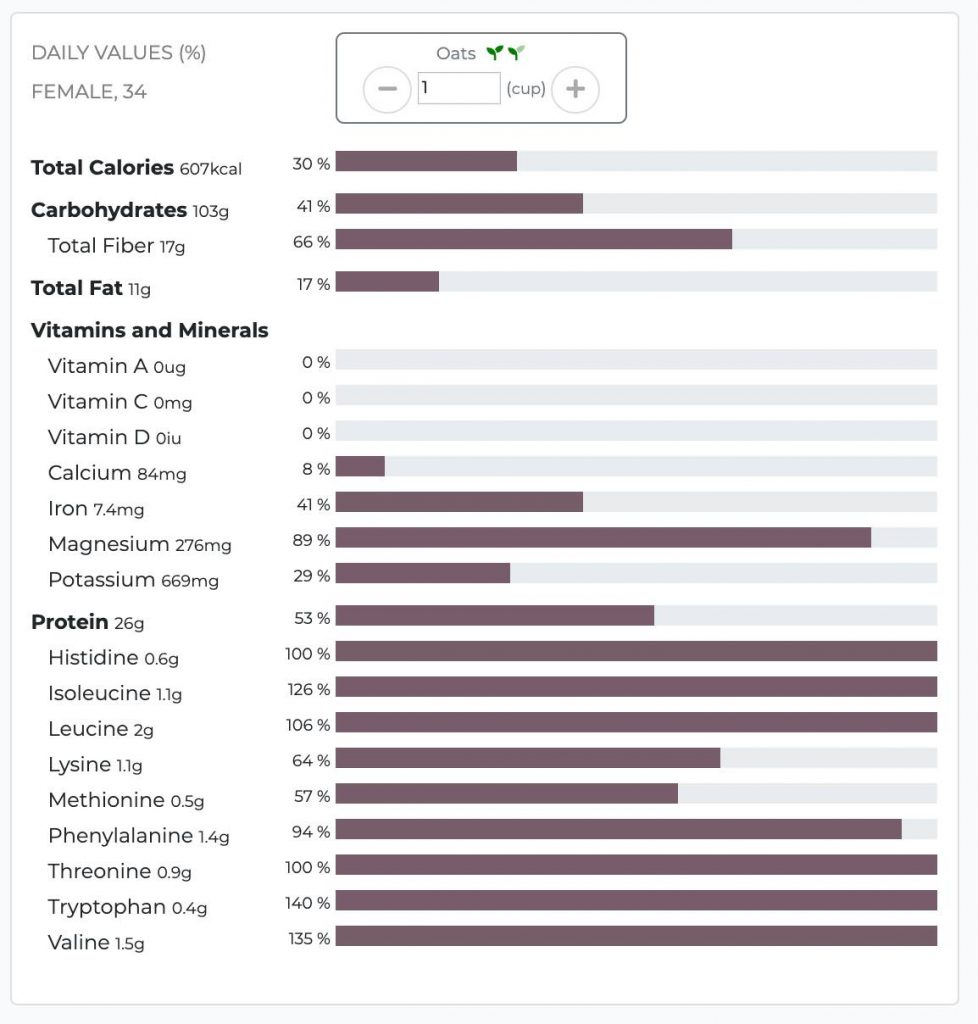
6. Spirulina and Pine Nuts
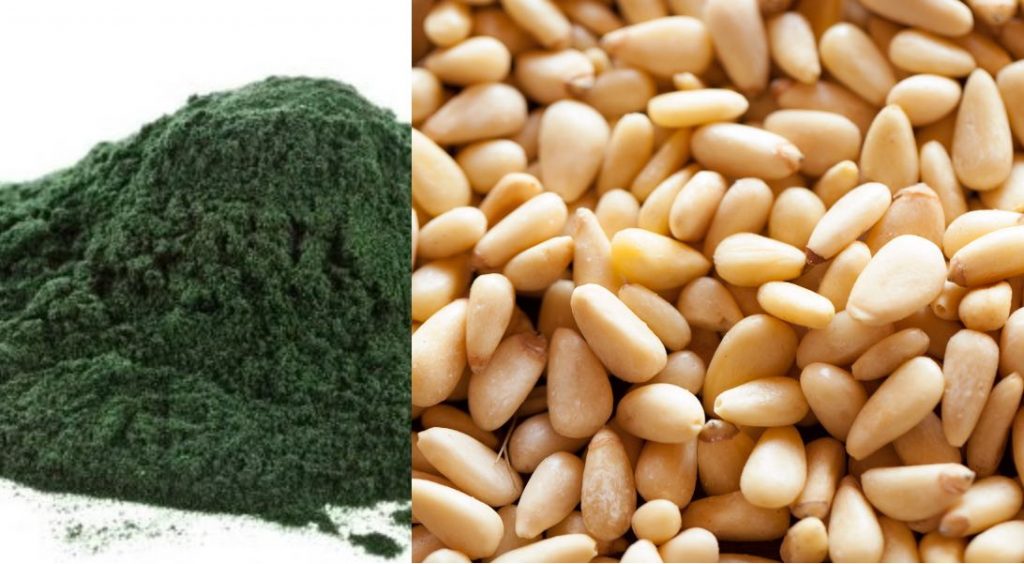
For the more adventurous, Spirulina is a kind of blue green algae that has been used for centuries as a food source in other countries, notably by the Aztecs in the form of ‘Tecuitlatl’.
Spirulina has the highest ratio of protein and amino acids by weight in our list, and likely any list of vegan proteins you can find. It has 4 grams of protein per tablespoon, along with very high contributions to all 9 essential amino acids.
Pine nuts, or pignoli, are also a nutritional powerhouse, but is a bit high in unsaturated fat and generally pricey.
While either individually could be used as a topping on salads, together they can create a delicious combo. 1 cup of pine nuts, 1 tablespoon of Spirulina, a couple handfuls of basil, a clove of garlic and a few tablespoons of olive oil produces a delicious and nutritious concoction of Spirulina Basil Pesto.
In addition, the combination is loaded with nutrients like Copper Manganese and Vitamin E.
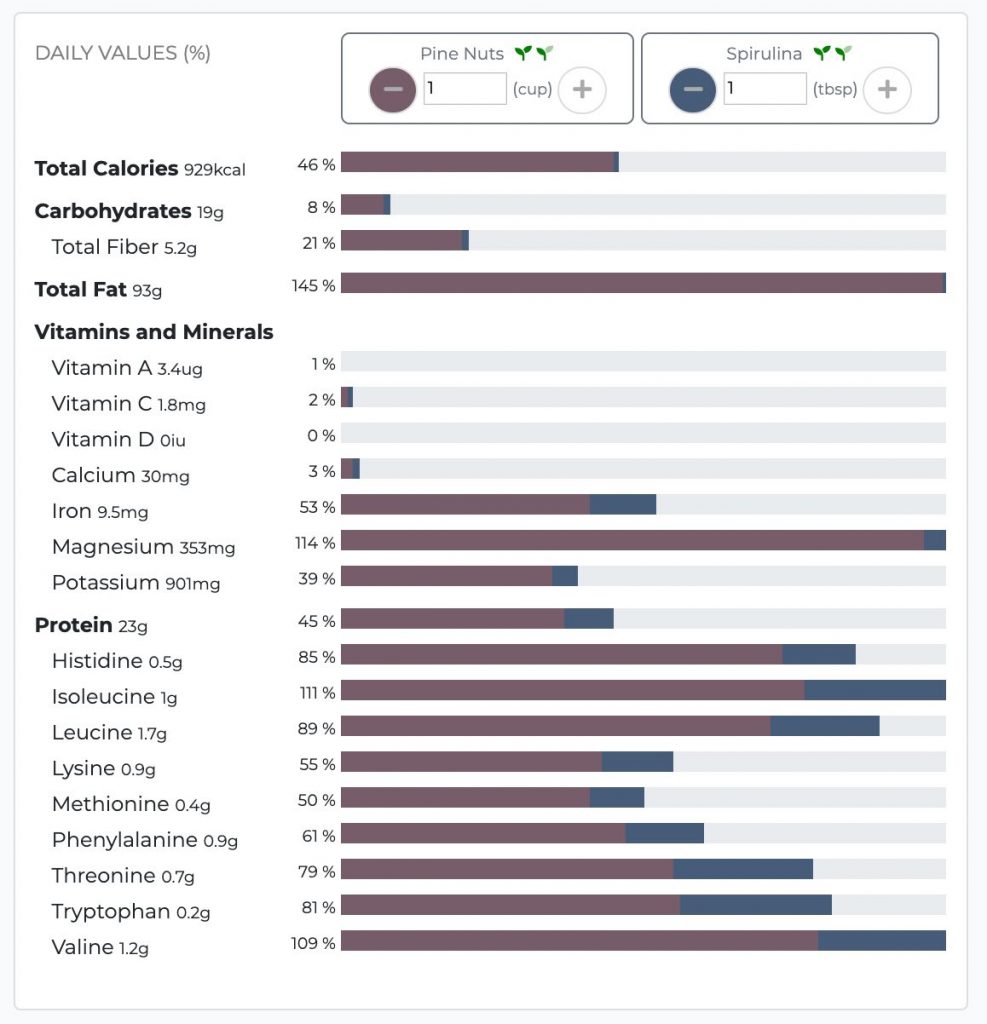
Final Notes
It’s not easy getting sufficient protein and complete amino acids profiles for vegetarians and vegans.
However, data and research have shown that there are healthy, affordable sources of plant protein. In addition, most have a suite of other vitamins, minerals and micronutrients.
Discover new ways to create complete vegan proteins and recipes that cater to your dietary restrictions at Souper Foods.
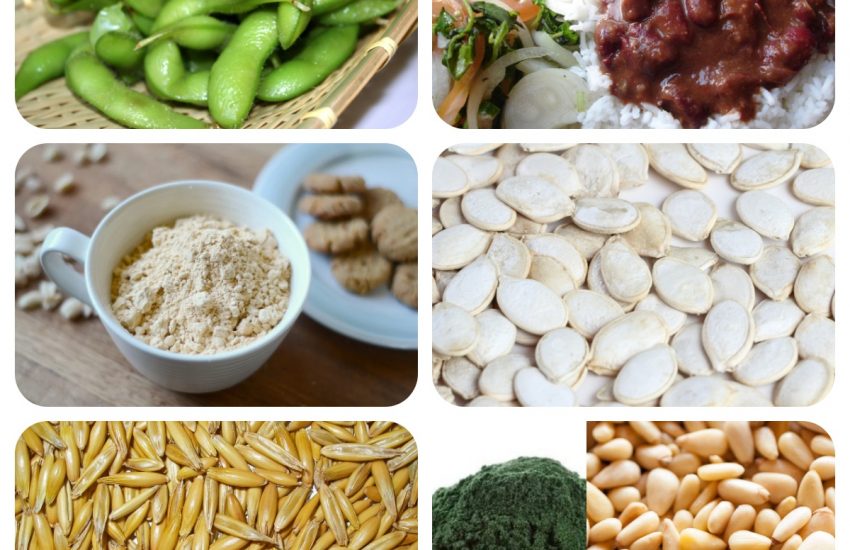
2 comments